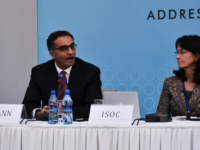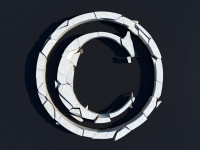The dot-org domain extension was established as one of the first top-level domains in 1985 alongside dot-com, dot-net and a handful of others. In 2002, administration over the domain was awarded to the Public Interest Registry (PIR), a non-profit established by the Internet Society (ISOC), to run the extension. PIR recently announced that it was being purchased by Ethos Capital, a private equity firm that includes a former CEO of ICANN among its founders. With a rumoured purchase price of over $1 billion dollars, there is big money for ISOC but the deal has left the non-profit community worried about potential price increases and policy changes to the domain that could impact online speech. Elliot Harmon, Activism Director with the Electronic Frontier Foundation, recently wrote about the issue and has been working on a campaign with NGOs around the world opposed to the deal. He joined on the podcast to discuss the background behind dot-org, the concerns with the sale, and what can be done about it.
Post Tagged with: "eff"
The Trouble With the TPP, Day 39: Quiet Expansion of Criminal Copyright Provisions
The past two Trouble with the TPP posts have focused on the disconnect between the TPP and Canadian copyright law which raises the possibility that the Canadian digital lock rules may not be consistent with the TPP. In addition to those concerns, the Electronic Frontier Foundation recently identified a subtle change that was added during the “legal scrub”. The change involved a provision on applying criminal procedures and penalties in cases of willful copyright infringement on a commercial scale. The version released in November stated:
The CISPA Impact in Canada
The EFF has an important post on the potential impact of CISPA – the the Cyber Intelligence Sharing & Protection Act of 2011 – on Canada. The EFF argues that “if CISPA passes in the U.S., Canadians could expect great political pressure to adopt similar measures in Canada.” In fact, […]
Bill C-11 and the Hazards of Digital Lock Provisions
The Electronic Frontier Foundation has a pair of excellent posts on Bill C-11 and the dangers of the digital lock rules. The first focuses specifically on digital lock rules and the second on U.S. pressure on Canadian copyright reform.
U.S. Domain Name Censorship Bill Delayed
The EFF reports that the proposed legislation targeting domain names and allegations of infringement has been delayed. I wrote about the bill earlier this week.





![Red alert -[ HMM ]- by Carbon Arc CC BY-NC-SA 2.0 https://flic.kr/p/FgBkhR](https://www.michaelgeist.ca/wp-content/uploads/2024/10/25774555205_035a814280_k-100x75.jpg)


